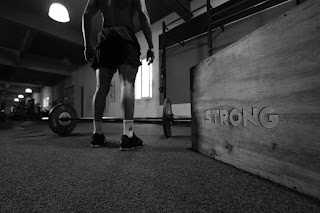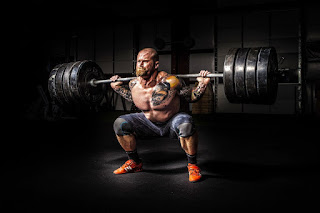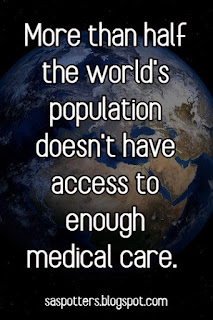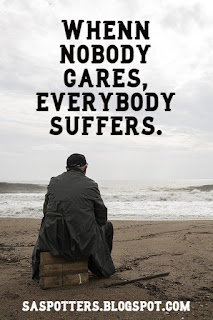 |
| Learn about keto and muscle growth. |
You can grow muscle on a ketogenic diet
Introduction: Old-school bodybuilding culture versus modern concepts
When I first started getting into the health and fitness industry, my goal was to try and self-heal an injury. I spent my days swimming and doing water aerobics in an effort to strengthen the muscles around my injured back. Learn more about my struggle with my back injury and how I overcame it.
Slowly over time as my body got stronger and the injury started getting better, I had to begin evolving my training routine. I went from swimming and water aerobics to working out in the gym with my friends. The more I worked out, the more I started looking up to the “really big” guys in the gym. It became my mission. Thus… my passion for bodybuilding was born.
It always amazed me how much control these men and women had over their bodies. I immersed myself in traditional bodybuilding culture. Classic bodybuilding culture tells us that in order to gain huge amounts of lean muscle; you have to eat huge amounts of healthy carbs and protein.
Years later when I discovered the keto diet, naturally I began wondering what this diet could mean for modern bodybuilding culture. There are a ton of myths going around about keto-bodybuilding, so to address it once and for all I took a look into the keto diet and the effects of bodybuilding.
It always amazed me how much control these men and women had over their bodies. I immersed myself in traditional bodybuilding culture. Classic bodybuilding culture tells us that in order to gain huge amounts of lean muscle; you have to eat huge amounts of healthy carbs and protein.
Years later when I discovered the keto diet, naturally I began wondering what this diet could mean for modern bodybuilding culture. There are a ton of myths going around about keto-bodybuilding, so to address it once and for all I took a look into the keto diet and the effects of bodybuilding.
Growing muscle is tough
 |
| The outdated logic behind muscle growth is misguiding. |
No matter how you slice it, building muscle is just tough. You need a certain level of knowledge and a ton of discipline to see results.
Traditionally, we have been taught that we need carbohydrates to build muscle. If this is true, how can you possibly build muscle and live a keto lifestyle? Well… perhaps I am the first to tell you that the old-school way of thinking is wrong!
We are taught that carbs are essential for muscle growth because insulin promotes muscle hypertrophy and improves stamina. If you begin to look at the facts, however, the opposite is true.
Insulin promotes fatty-acid synthesis - which promotes weight gain. Therefore many bodybuilders pack on the body fat as well as lean muscle during their 'bulking cycle'. They then cut the carbs WAY down during their 'cutting cycle' to drop their body fat percentage.
What if there was a better way?
What really intrigues me about keto and bodybuilding is that you turn your body into a fat burning machine.
Even better, the research shows that ketones deliver more energy than glucose. They also metabolize at a slower pace. Once you are fat adapted, this gives you higher energy levels and increased stamina.
Research has shown that the keto diet not only preserves lean muscle mass, but also has been shown to increase levels of testosterone and human growth hormone (HGH).
Beta-Hydroxybutyrate (BHB) is one of 3 ketone bodies produced in ketosis. BHB has been shown to be anti-catabolic - meaning it prevents the process of muscle breakdown.
Elevated testosterone and HGH levels, as well as the effects of BHB, create a perfect environment for you to pack on lean muscle mass and keep it on in the long term.
Even better, the research shows that ketones deliver more energy than glucose. They also metabolize at a slower pace. Once you are fat adapted, this gives you higher energy levels and increased stamina.
But what about building muscle?
Beta-Hydroxybutyrate (BHB) is one of 3 ketone bodies produced in ketosis. BHB has been shown to be anti-catabolic - meaning it prevents the process of muscle breakdown.
Elevated testosterone and HGH levels, as well as the effects of BHB, create a perfect environment for you to pack on lean muscle mass and keep it on in the long term.
Targeted Ketogenic Diet (TKD) for bodybuilders
TKD or the “Targeted Ketogenic Diet” is a great option for athletes like bodybuilders who want to live a low carbohydrate life. TKD is a spin-off of the traditional keto diet.
The key difference is that on a traditional keto diet, you keep your daily intake of carbs below 20g, whereas when you are practicing TKD you time your daily carbs intake for right before or right after your intense workout.
This allows you to take advantage of the fast energy effect the carbs give you to fuel your workout, without dropping your body out of ketosis.
It is important to note, however, that you cannot eat more carbohydrates than you will burn during your workout. The idea is to burn all those carbs off immediately, thus not allowing them to interfere with your body’s production of ketones.
The key difference is that on a traditional keto diet, you keep your daily intake of carbs below 20g, whereas when you are practicing TKD you time your daily carbs intake for right before or right after your intense workout.
This allows you to take advantage of the fast energy effect the carbs give you to fuel your workout, without dropping your body out of ketosis.
It is important to note, however, that you cannot eat more carbohydrates than you will burn during your workout. The idea is to burn all those carbs off immediately, thus not allowing them to interfere with your body’s production of ketones.
Keto adaption and bodybuilding
 |
| What about a loss of strength from keto flu? |
As I mentioned before, the whole idea behind the keto diet is to get your body to run on fat rather than carbs.
Because you’re asking your body to do something that it has never done before, there is a period that your body will go through called the 'Keto-Adaptation Period' or becoming 'Fat Adapted'.
If you’ve ever looked into the keto diet before, you have undoubtedly heard of the keto flu. This is the first stage of your body’s adaptation period. You will begin to feel unusually tired and lethargic. You may develop a headache and even constipation.
This is a sign that your body has used up its stores of glucose and that it is beginning to run out of fuel to burn for energy. These symptoms typically last between 24 and 48 hours. Afterwards, your body will begin to produce ketones and start learning how to use them.
This is not the end of your body’s adaptation period, however. Becoming fully fat adapted typically takes between 3-4 weeks and in that time you may notice a decrease in strength and stamina.
It is important to remember that this is completely normal. You are asking your body to stop doing something it has done its entire life and start doing something totally new. It is important to be patient with your body and know that it is only a temporary loss in strength.
As soon as you become fully adapted you will not only see your strength return but experience significant increases in both strength and energy.
5 tips for building muscle on keto
Packing on muscle in keto is not only possible, but better. Here are 5 tips that I’ve found to really help maximize muscle gain and help you to get the most out of your effort:
1. Eat a snack before or after your workout
Whether you are practicing the TKD approach and pre-loading carbs or sticking to a traditional keto diet, it is important to eat a small snack within 30 minutes before or after your workout. This will give your body the extra nutrients that it needs to perform at its best. It will allow you to really push yourself in the gym.
2. Regular strength training
It is essential to engage in intense physical activity to create new muscle.
Put yourself in a consistent strength training routine. It is important to keep a good variety of exercises in your training split as well. Use free weights as well as resistance bands and machines.
Doing so will help ensure that your body does not get too used to your workout and fall into a plateau.
Put yourself in a consistent strength training routine. It is important to keep a good variety of exercises in your training split as well. Use free weights as well as resistance bands and machines.
Doing so will help ensure that your body does not get too used to your workout and fall into a plateau.
3. Replenish electrolytes
It is exceedingly important that you replenish your electrolytes on a regular basis when doing the keto diet. In one of my previous articles, Top 5 Biggest Keto Fails, I talk about the importance of electrolytes in a ketogenic diet.
While on keto, your kidneys are not collecting as much sodium. This in turn makes it very easy for you to become very low in electrolytes - especially during and after intense workouts.
While on keto, your kidneys are not collecting as much sodium. This in turn makes it very easy for you to become very low in electrolytes - especially during and after intense workouts.
4. Maintain a moderate level of protein intake
Protein creates muscle, so obviously as bodybuilders we will be worried about protein consumption.
The keto diet is no different. It is important that you are getting the appropriate amount of dietary protein every day.
Generally you are looking for about 0.25 grams - 0.3 grams of protein per pound of body weight (depending on age, weight and activity level).
If you’re still not sure about what your intake should be, check out one of the many macro calculators online like this Protein Calculator.
You break down your muscle fibers and create micro tears when you work out. This tearing is what promotes new muscle growth.
Without proper sleep you will lose out on good, healthy muscle recovery. Poor sleep quality has actually been shown to cause your body to hold onto body fat and increase your blood sugar levels.
If you enjoyed this article, please leave me a comment below and let me know what you think! I love hearing from you and connecting with you. You guys are the reason why I’m here.
If you’re interested in learning more about keto as an athlete, pick up my brand new book Keto Strong – A Beginners Guide to High Performance Keto and let me help you get a jump start on your keto journey!
On his blog J.P. Wells Fitness, J.P. Wells shares the knowledge and passions that he has come to learn from in the fitness industry and fitness culture. He understands that health and fitness is not just a one-time choice, but a lifestyle. Success in your goals is not made up of large single decisions, but rather a series of small choices that are made well throughout every day.
Check him out on Facebook and Twitter.
The keto diet is no different. It is important that you are getting the appropriate amount of dietary protein every day.
Generally you are looking for about 0.25 grams - 0.3 grams of protein per pound of body weight (depending on age, weight and activity level).
If you’re still not sure about what your intake should be, check out one of the many macro calculators online like this Protein Calculator.
5. Get good quality sleep
Getting quality sleep at night cannot be too overstated. This is where all your recovery and growth happens.You break down your muscle fibers and create micro tears when you work out. This tearing is what promotes new muscle growth.
Without proper sleep you will lose out on good, healthy muscle recovery. Poor sleep quality has actually been shown to cause your body to hold onto body fat and increase your blood sugar levels.
Conclusion
Contrary to what you might have heard from the old school muscle crowd in the gym, you can definitely build muscle without sugar and carbohydrates.
The keto diet can be a real good dietary option for your bodybuilding routine. What's more, it can dramatically improve your overall physique when done right. After all, when it comes to bodybuilding, physique is everything.
Following a keto diet gives you the option of living year-round with an impressive body fat percentage rather than swinging between a high fat bulking cycles and a super restrictive cutting cycle.
It allows you to look your best all the time - and that’s the whole point, isn’t it?
The keto diet can be a real good dietary option for your bodybuilding routine. What's more, it can dramatically improve your overall physique when done right. After all, when it comes to bodybuilding, physique is everything.
Following a keto diet gives you the option of living year-round with an impressive body fat percentage rather than swinging between a high fat bulking cycles and a super restrictive cutting cycle.
It allows you to look your best all the time - and that’s the whole point, isn’t it?
 |
| Keto can dramatically improve your entire physique. |
If you enjoyed this article, please leave me a comment below and let me know what you think! I love hearing from you and connecting with you. You guys are the reason why I’m here.
 |
| High performance keto |
If you’re interested in learning more about keto as an athlete, pick up my brand new book Keto Strong – A Beginners Guide to High Performance Keto and let me help you get a jump start on your keto journey!
J.P. Wells
J.P. Wells spent the last 13 years of his life learning about, and pursuing, a healthy and active lifestyle. After sustaining a life-changing injury during his time serving in the United States Military, he dedicated his time to learning and researching ways to heal and re-build his body to get back to the active lifestyle he grew up loving. |
| Meet the author. |
On his blog J.P. Wells Fitness, J.P. Wells shares the knowledge and passions that he has come to learn from in the fitness industry and fitness culture. He understands that health and fitness is not just a one-time choice, but a lifestyle. Success in your goals is not made up of large single decisions, but rather a series of small choices that are made well throughout every day.
Check him out on Facebook and Twitter.
 |
| Support our website and buy this awesome Tee Shirt. |









































